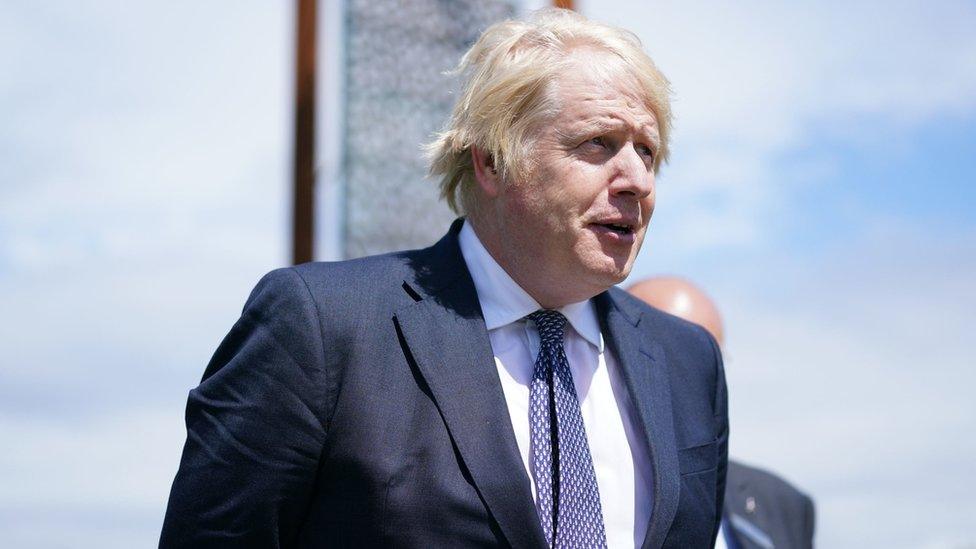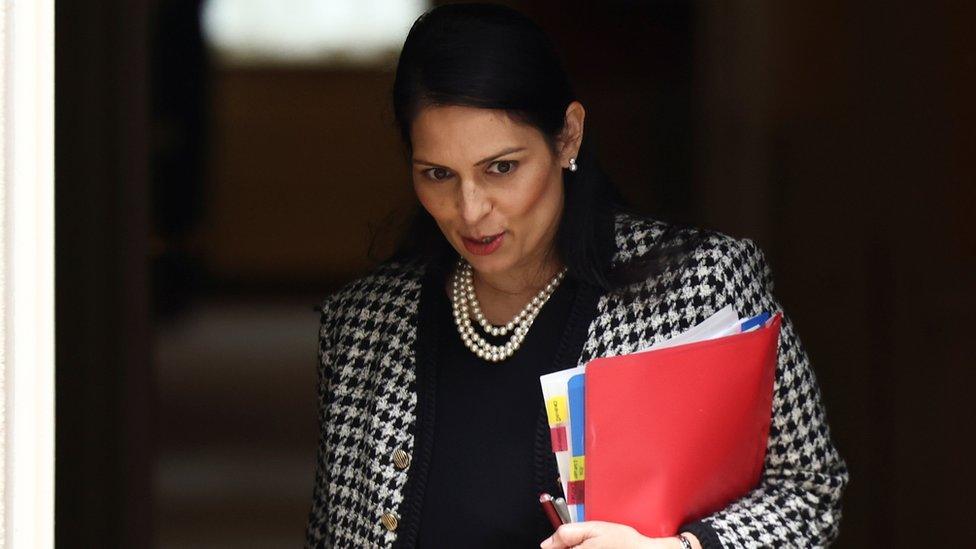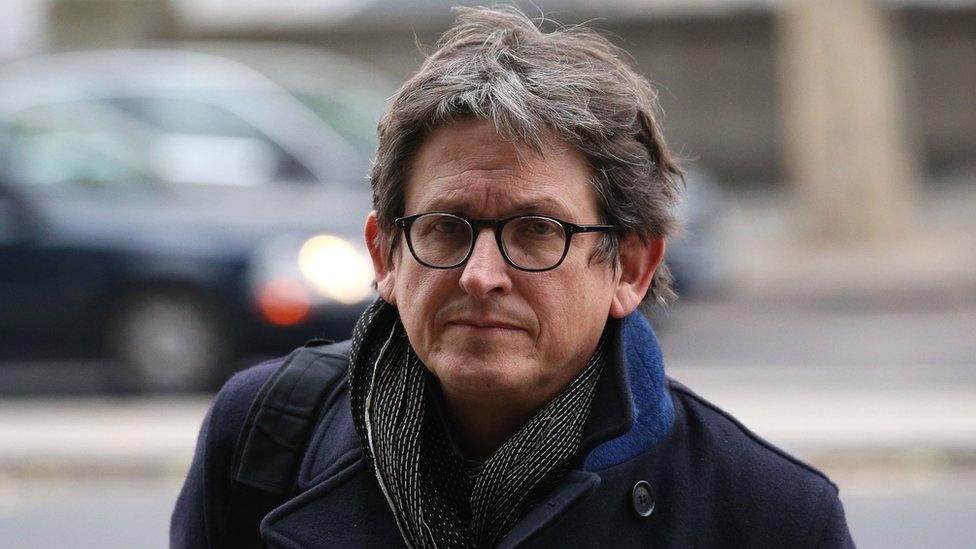Official Secrets Act: Do government plans threaten investigative journalism?
- Published

Boris Johnson had a long career as a journalist before entering Downing Street
Boris Johnson has denied that a planned overhaul of the UK's secrecy laws could pose a threat to a free press.
In a recent consultation, the Home Office argued the Official Secrets Act should be redrawn to counter modern security threats.
But campaign groups and journalists have warned the plans could curtail investigative reporting and threaten whistleblowers.
What is the Official Secrets Act?
The law makes it a criminal offence for current or former government employees to leak certain types of information considered "damaging".
These cover areas including security and intelligence, defence and international relations.
The rules are even stricter for current and former intelligence officers - for them, any unauthorised disclosure is automatically an offence.
Government employees don't have to sign the Act to be bound by it. They can simply be "notified" it applies to them, usually in their employment contract.
The law was first created in 1911, and was most recently updated in 1989.
What about journalism?
Anyone - including journalists - can be prosecuted for publishing leaked information covered by the legislation.
This offence, known as "onward disclosure", currently carries the same maximum two-year jail term that applies to officials leaking information.
The 1989 Act does not allow for a specific public interest defence, despite attempts by MPs to introduce one when the law was passed.
It means the defence available to most people prosecuted under the Act is to argue they did not know the disclosure would be damaging.
The other option is to use the so-called "defence of necessity" - by arguing disclosure prevented a more serious crime being committed.

Home Secretary Priti Patel's department is overseeing the consultation
What is being proposed?
In May, the Home Office published a consultation paper, external containing a number of proposals to revise the Official Secrets Act.
It followed a review of the legislation by the Law Commission originally commissioned in 2015 and finally published last September, external.
The Home Office backed suggestions from the Commission that maximum sentences should be increased, and it should consider whether more types of information should be covered by the Act.
The government also said it would look at extending the Act to cover British citizens overseas, and non-British citizens.
It said the changes were necessary to ensure sensitive information is better protected in the face of new security threats.
And it argued new technology - enabling, for example, whole documents to be uploaded to the internet - meant there was not "necessarily a distinction in severity" between spying and the most serious leaks.
No public interest defence
However, the government did not endorse a recommendation from the Commission to include a specific public interest defence.
The Home Office argued this did not "strike the right balance" between press freedom and the "serious harm" that could be caused by leaks.
It added that officials and journalists are "rarely if ever" in a position to compare the public interest against the potential damage of publication.
This aspect of the response has sparked anger from campaigners and industry groups, many of whom have long campaigned for such a defence.
The National Union of Journalists said it would provide "improved safeguards" for reporters, as well as an "an essential safety net" to whistleblowers who leak information to them.
Reporters Without Borders said a public interest defence was "a crucially necessary reform" to prevent "serious risks for journalists".
Who else is concerned?
A number of individual journalists and media organisations have spoken out against the Home Office plans.
In an editorial, external, the Sun newspaper has criticised them as a "licence for cover-up" that would prove a "chilling clamp" on investigative journalism.
And former Guardian editor Alan Rusbridger, who oversaw the publication of the Edward Snowden leaks on US surveillance, has warned they could "criminalise journalism" and pose a "menacing threat to free speech".
He also criticised the plans for conflating the dangers of spying and unauthorised disclosures, adding: "We need leaks and leakers.
"Society might approve of such people, either at the time or later, but under the [Home Office] proposals they would have no chance to put their case.
"Neither would any journalist who spoke to them."

Alan Rusbridger is a prominent critic of the government's plans
What happens next?
The government has pointed out that people are rarely prosecuted under the Act, which usually requires sign-off from the attorney general.
According to the House of Commons Library, prosecutions usually average fewer than one a year.
But campaigners insist the Act nevertheless creates a powerful chilling effect on whistleblowers and reporters, threatening public interest journalism.
Asked about the backlash to the plans, the prime minister - himself a former columnist and editor - said he did not want to see anything "interrupt the operation of good journalism".
Speaking on LBC radio, he called the proposals a "general review" of the government's secrecy laws.
"I don't want to have a world in which people are prosecuted for doing what they think is their public duty and… in the public interest."
The Home Office has said maintaining press freedom is a "priority" and it will listen to consultation responses before developing final proposals.
- Published2 May 2019
